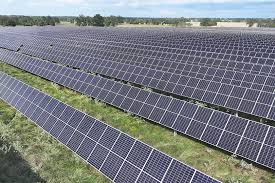
Breaking News
 Horror Israeli Intel Database Reveals 83% Killed In Gaza Are Civilians!
Horror Israeli Intel Database Reveals 83% Killed In Gaza Are Civilians!
 Aaron Lewis on Being Blacklisted from Radio & Why Record Labels Intentionally Promote Terrible Music
Aaron Lewis on Being Blacklisted from Radio & Why Record Labels Intentionally Promote Terrible Music
 The Number of Housing Units Under Construction Continues to Crash
The Number of Housing Units Under Construction Continues to Crash
 U.S. Federal Reserve's New Supervision Chief Sold on Bringing Crypto to Finance
U.S. Federal Reserve's New Supervision Chief Sold on Bringing Crypto to Finance
Top Tech News
 Video Games At 30,000 Feet? Starlink's Airline Rollout Is Making It Reality
Video Games At 30,000 Feet? Starlink's Airline Rollout Is Making It Reality
 Automating Pregnancy through Robot Surrogates
Automating Pregnancy through Robot Surrogates
 SpaceX launches Space Force's X-37B space plane on 8th mystery mission (video)
SpaceX launches Space Force's X-37B space plane on 8th mystery mission (video)
 This New Bionic Knee Is Changing the Game for Lower Leg Amputees
This New Bionic Knee Is Changing the Game for Lower Leg Amputees
 Grok 4 Vending Machine Win, Stealth Grok 4 coding Leading to Possible AGI with Grok 5
Grok 4 Vending Machine Win, Stealth Grok 4 coding Leading to Possible AGI with Grok 5
 Venus Aerospace Hypersonic Engine Breakthroughs
Venus Aerospace Hypersonic Engine Breakthroughs
 Chinese Scientists Produce 'Impossible' Steel to Line Nuclear Fusion Reactors in Major Break
Chinese Scientists Produce 'Impossible' Steel to Line Nuclear Fusion Reactors in Major Break
 1,000 miles: EV range world record demolished ... by a pickup truck
1,000 miles: EV range world record demolished ... by a pickup truck
 Fermented Stevia Extract Kills Pancreatic Cancer Cells In Lab Tests
Fermented Stevia Extract Kills Pancreatic Cancer Cells In Lab Tests
BREAKING: USDA halts taxpayer-funded solar panels on farmland--protecting food security...

In a sweeping reversal of Green New Deal-era energy policies, U.S. Agriculture Secretary Brooke Rollins announced Monday that the U.S. Department of Agriculture (USDA) will immediately cease funding solar panel projects on productive farmland—a decision celebrated by farmers, rural lawmakers and fiscal conservatives as a long-overdue correction to years of misguided subsidies.
Speaking at an event in Lebanon, Tennessee, alongside Governor Bill Lee and a bipartisan delegation of congressional leaders, Rollins declared that taxpayer dollars will no longer bankroll solar or wind projects on agricultural land, nor will USDA programs permit the use of solar panels manufactured by foreign adversaries like China. The policy shift comes as data reveals a staggering loss of farmland to renewable energy development: Tennessee has lost over 1.2 million acres in the past 30 years, with projections indicating another 800,000 acres could vanish by 2027 if trends continue.
"This destruction of our farms and prime soil is taking away the futures of the next generation of farmers and the future of our country," Rollins posted on X (formerly Twitter). "Starting today, USDA will no longer deploy programs to fund solar or wind projects on productive farmland, ending massive taxpayer handouts."
The decision extends beyond Tennessee. Nationwide, solar panels on farmland have surged by nearly 50% since 2012, according to USDA data, with 47% of utility-scale solar projects now sited on agricultural land—a direct consequence of federal and state subsidies incentivizing renewable energy over food production. Critics argue these policies, rooted in the Green New Deal's push for rapid decarbonization, have distorted land markets, making it harder and more expensive for young farmers to acquire arable land.
"One of the largest barriers of entry for new and young farmers is access to land," Rollins emphasized. "Subsidized solar farms have made it more difficult for farmers to access farmland by making it more expensive and less available."
Food security vs. green energy experiments
The USDA's announcement marks a fundamental shift in federal priorities, prioritizing domestic food production and energy independence over what criics call "unreliable green energy experiments" subsidized by taxpayers. The move aligns with the Trump administration's broader America First energy agenda, which has sought to roll back climate-related mandates that opponents argue threaten U.S. agricultural sovereignty.

 3D printing set to slash nuclear plant build times & costs
3D printing set to slash nuclear plant build times & costs

